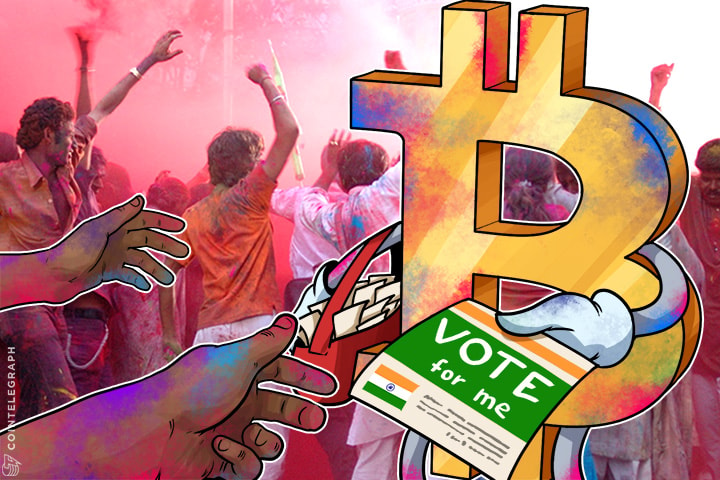The government of India has fixed May 31, 2017, as the last day by which citizens can express their views of digital currencies on the government portal mygov.in.
This consultative process seems to be a step in the direction of taking some sort of stand on virtual currencies or digital currencies in India.
At the moment digital currencies like Bitcoin operate in a gray space in the country and there have been some controversies lately on the legality of Bitcoin in the second most populous country in the world. If the government is now taking on board public opinion it would appear that they are about to take a stand on the matter.
Should Bitcoin be banned, regulated or observed?
According to the government of India portal, one of the questions that the Indian government is asking the public is whether Bitcoin and other Virtual Currencies (VCs) should be banned, regulated or controlled.
In a post made on the government website, the government of India wants to know from people if virtual currencies are to be regulated what measures should be taken to ensure consumer protection and what measures should be taken to promote ‘orderly’ development of such currencies.
The government is also asking the question which institutions should be involved in the monitoring and regulating of VCs.
Interestingly the government is also asking that if these currencies are not regulated than what should be the effective self-regulatory mechanisms and what measures should be adopted to protect consumers in a self-regulated arena.
Examining existing framework
In March of 2017, the government of India has already constituted an Interdisciplinary Committee which is chaired by the Special Secretary for Economic Affairs.
On board, it has representatives from the Department of Economic Affairs, Department of Financial Services, Department of Revenue (CBDT), Ministry of Home Affairs, Ministry of Electronics and Information Technology, Reserve Bank of India, NITI Aayog and the State Bank of India.
From the constitution of this committee, it can be guessed that the government is pretty much serious on examining the status of Bitcoin and other currencies in the country.
Self-regulation
At the moment the Bitcoin industry in India is pretty much self-regulated. However, there has been interest in the legal status of Bitcoin in India, which has been building over time.
We covered in April 2017 how Assocham, one of the oldest and largest trade bodies in India has held a ‘global summit’ which was on the topic of Bitcoin’s status in India. We had also covered the news of the efforts of various Bitcoin players in the country coming together to form the Digital Asset and Blockchain Foundation of India (DABFI) in order to self-regulate the industry.
Most comments positive
There are a number of positives that can be construed from this latest development in India. One is that the government is finally moving towards taking some sort of stance on Bitcoin, whether positive or negative.
The second is that there are a lot of positive comments being left on the government portal by common Indian citizens.
Take for example Deep Sharma who writes:
“Legalize Bitcoin in India like other countries, it's was a good step for our economy and provide a boost to the economy or increase GDP rate.”
Bisnuram Kramsa writes:
“Cryptocurrency is the future currency so we have to regulate Bitcoin.”
It would appear that a Bitcoin-related legal framework will be in place in India sometime in the future. How soon and what shape it will take, only time will tell.


